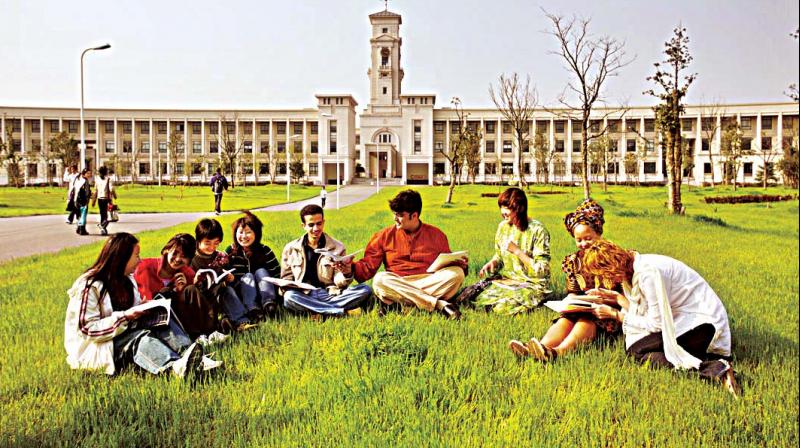No England ahoy! For Indian students

Bengaluru: Despite all the bonhomie surrounding British Prime Minister Theresa May’s India visit, there are dark clouds hovering over the horizon, especially for students looking to study and work in the UK.
The British PM on Monday reiterated that Britain had a ‘good’ visa system with India and that visa quota would not be increased for Indian students.
Under Ms May’s watch as PM, British Home Secretary Amber Rudd announced major restrictions on education visas in October, including two-tier visa rules, affecting poorer quality universities and courses, and a crackdown on work visas. She is also responsible for the introduction of a £140m “controlling migration fund”.
All these steps certainly do not bode well for Indian students planning to study in the UK. Besides huge financial costs compared to other educational destinations, the UK is proving to be a bugbear for Indian students as it does not offer students the chance to work after completing their studies.
Unlike Britain, many European Union countries, like Germany and Ireland, offer students the opportunity to work for a year or so giving them the invaluable work experience.
A representative from Edwise Consultancy, who wished not to be identified, said, “Yes, the demand has gone down and may plummet even further. Though students want to go and study in Britain, high university fees and hard-to-get visas put them off.”
Ms Geetha of Overseas Education Solutions said, “The demand has dropped considerably. Students planning to go to the UK have been affected. Since countries like Germany and Ireland offer work experience which is unparalleled, people generally put the UK as the last option.”
She said, “Tough UK work permit laws work against the average Indian student. Besides the United States, Canada and Australia are excellent alternatives England for studying.”
Though Prime Minister Narendra Modi hinted that education is a major factor in India’s ties with the UK, Ms May’s stance on immigration and visas is a sticking point in bilateral relations between the two countries.

